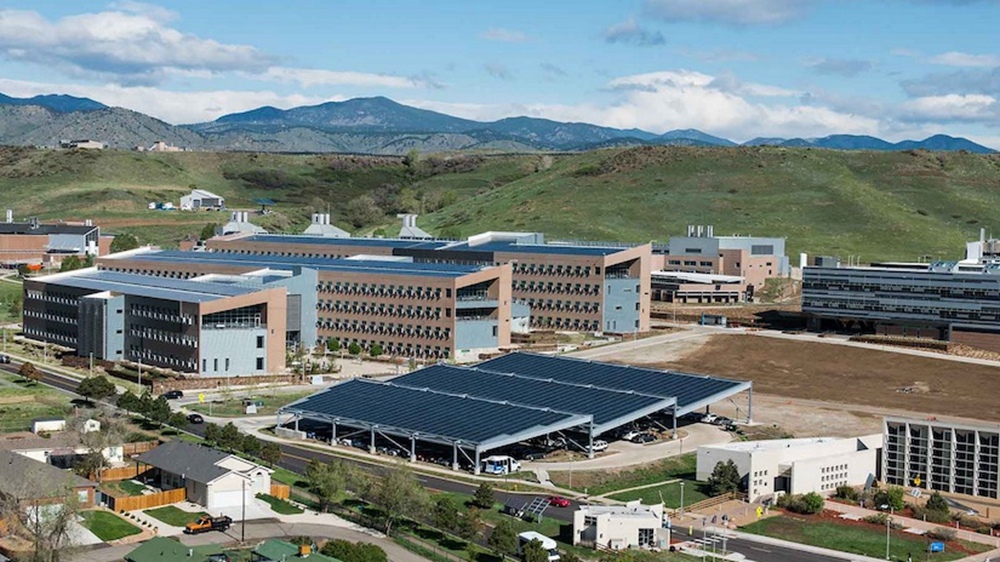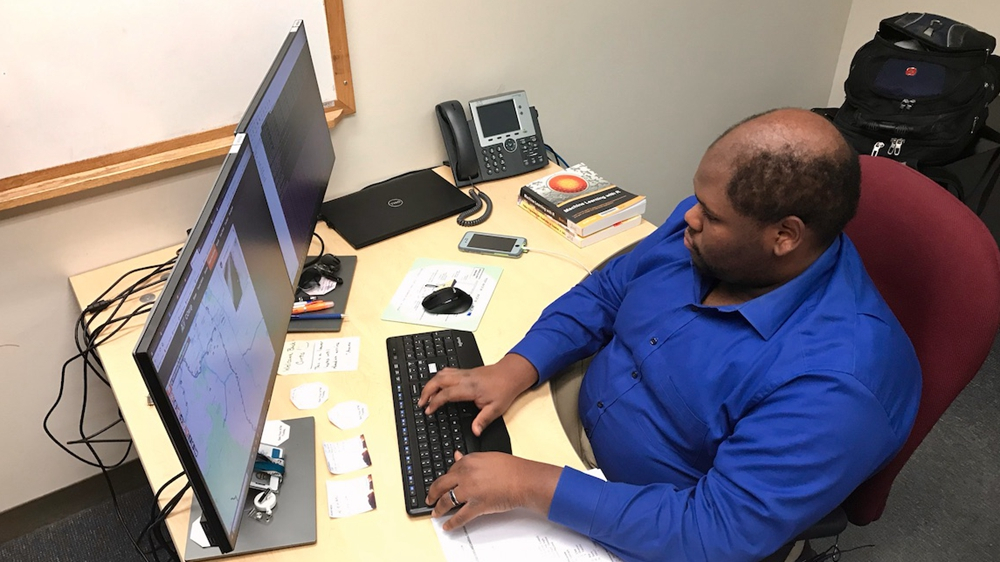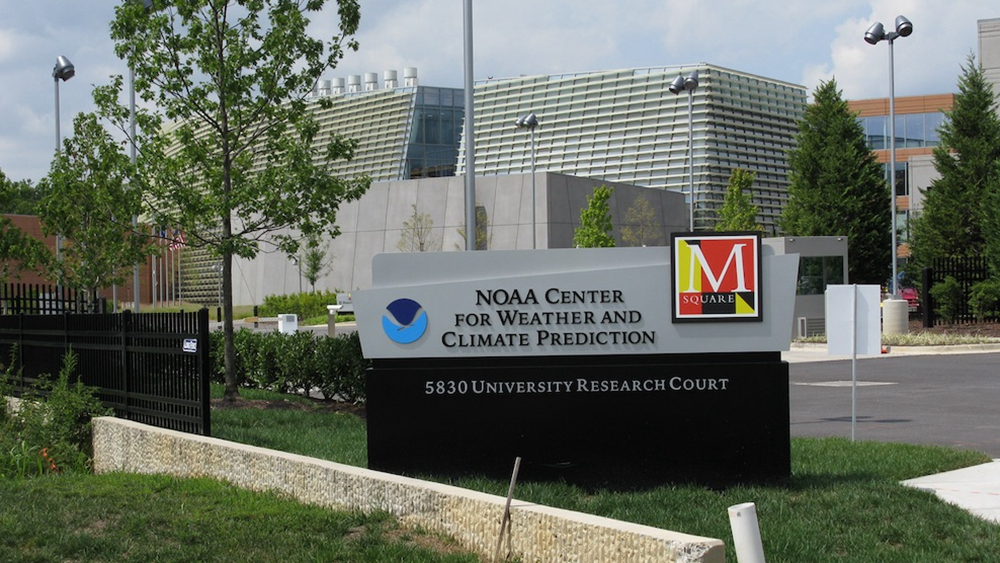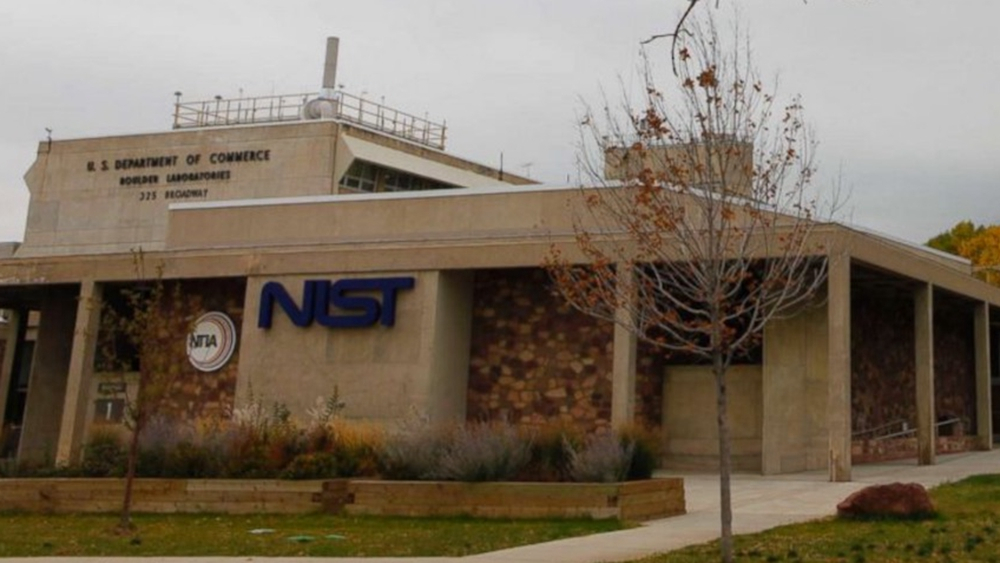
North America
10:21, 25-Jan-2019
Government shutdown creates research gaps in U.S.
By Hendrik Sybrandy

Joann Holloway is a research scientist studying the impact of mining on watersheds for a major U.S. government agency.
"It's a really beautiful way to conduct science because it's science that gives directly back to the public," Holloway said. She's currently unable to do that work because she was furloughed five weeks ago.
"It's a disappointment to know how little security I have," she said.
Curtis Walker is still on the job. The post-doctoral fellow at the National Center for Atmospheric Research (NCAR) is studying the use of artificial intelligence to better predict road conditions. He said his access to weather information on federal websites has been severely restricted.
"Unfortunately that's impeding getting access to data to further my research and data analysis," said Walker.

Curtis Walker works in his office. /CGTN Photo
Curtis Walker works in his office. /CGTN Photo
They're among the many thousands of people working in science across the U.S. who've been affected by the government shutdown and the shuttering of numerous federal agencies.
"The vast majority of our funding is from the United States government," said Antonio Busalacchi, the president of the University Corporation for Atmospheric Research. He oversees NCAR and said the inability to collaborate with furloughed colleagues is also hampering the development of new weather models.
"Ultimately that means we're not protecting life and property to the fullest extent that science will allow us to," Busalacchi said.
Projects have been interrupted. Shutdown-created research gaps have been created across the scientific spectrum, said science advocate Dan Powers, the executive director of CO-LABS.

A view of the NOAA Center for Weather and Climate Prediction. /CGTN Photo
A view of the NOAA Center for Weather and Climate Prediction. /CGTN Photo
"What we're not learning, in some ways we won't know how bad it was until weeks, months, years down the road," said Powers.
"We're all in the same boat together so to speak," Walker added.
Meantime, there's the human side, the human toll of this shutdown. Federal workers are bracing to miss their second paycheck. Many of them have filed for unemployment benefits, but that only goes so far."
"It gives me just enough over the course of a month to cover my house and my normal bills," Holloway said. She dreads the thought of the shutdown continuing.
"If this goes into February, I'm in trouble," she added.

A view of a research institute in the U.S. /CGTN Photo
A view of a research institute in the U.S. /CGTN Photo
Busalacchi, whose agency is currently funded until late February, worries the budget impasse could drive talented people out of science altogether.
"The message being sent to the scientific community is that the work you're doing is not really of value at the highest levels of the nation," said Busalacchi.
Holloway believes real damage has been done and that re-starting scientific research will be a challenge if and when the shutdown ends.
"It's going to take a while to ramp back up after this," she said. "That's one of the reasons why these shutdowns are so expensive."
Costly, she and other scientists argue, in so many different ways.

SITEMAP
Copyright © 2018 CGTN. Beijing ICP prepared NO.16065310-3
Copyright © 2018 CGTN. Beijing ICP prepared NO.16065310-3